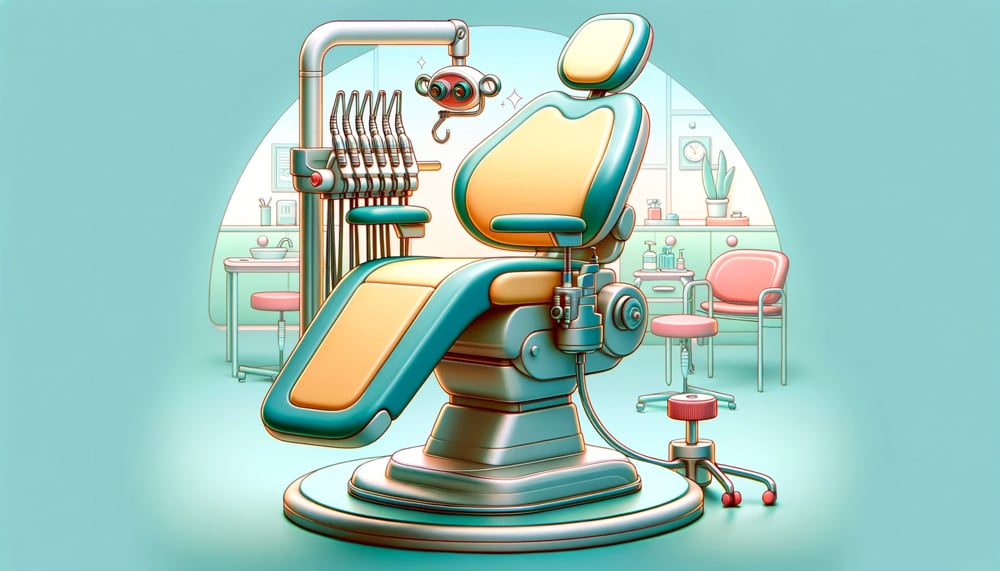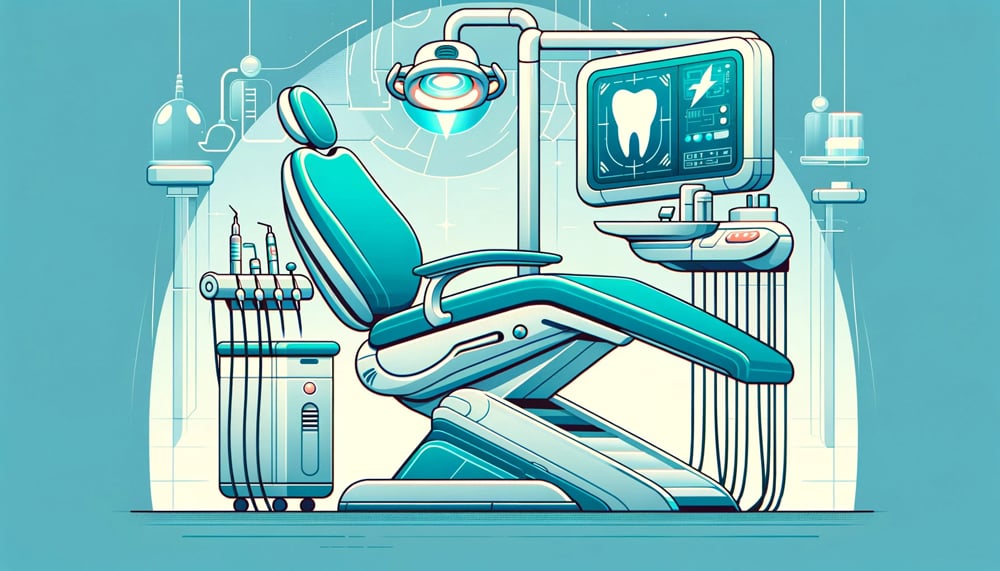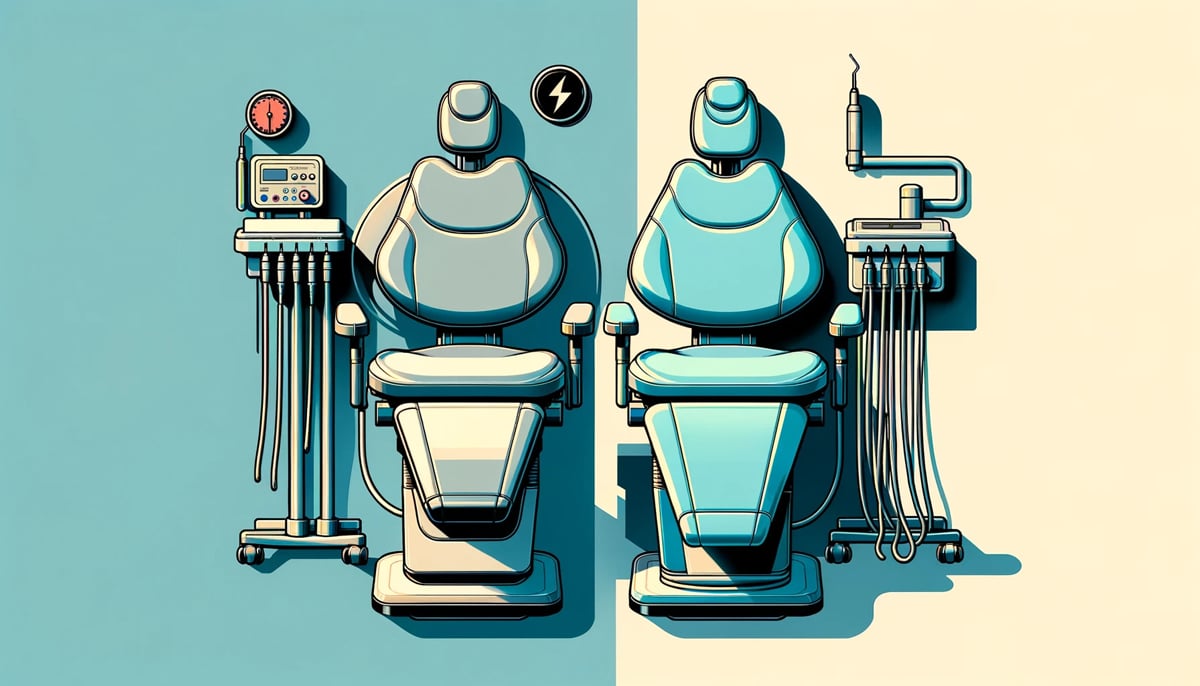The choice of a dental chair is pivotal in ensuring comfort and efficiency in a dental clinic.
With the evolution of technology, dental chairs have significantly advanced, offering varied features and functionalities.
The most common types in the market are hydraulic and electric (electromechanical) dental chairs.
This article delves into the comparison of Electric vs Hydraulic Dental Chairs, aiding dental professionals in making an informed decision.
Hydraulic Dental Chairs

The Mechanics of Hydraulic Chairs
Hydraulic dental chairs operate on a fluid movement technology, utilizing pumps and valves to circulate hydraulic liquid, which in turn controls the chair’s positioning.
Advantages of Hydraulic Chairs
- Simplicity and Ease of Use: These chairs feature straightforward controls like levers and buttons, making maneuvering them relatively easy.
- Quiet Operation: They are typically quieter compared to their electric counterparts.
- Consistent Force Delivery: Hydraulic chairs offer consistent force delivery, regardless of the patient’s weight.
- Lower Fire Hazard: They do not create sparks, reducing fire hazards.
Disadvantages of Hydraulic Chairs
- Maintenance Challenges: The hydraulic fluid used can be hazardous and requires careful handling and disposal.
- Environmental and Health Concerns: Hydraulic fluids are not eco-friendly and can pose health risks if not managed properly.
Also read How to Adjust Your Dental Chair for Optimal Use?
Electric (Electromechanical) Dental Chairs

Functioning of Electric Chairs
Electric dental chairs use motors for movement control, offering precision and pre-programmed settings for various positions.
Advantages of Electric Chairs
- High Precision Control: They allow for exact adjustments and repositioning.
- Affordability and Low Maintenance: Generally, electric chairs are more cost-effective and require less maintenance than hydraulic chairs.
- Environmentally Friendly: As they do not use hydraulic fluids, they are safer for the environment.
- Safety Features: Electric chairs often come with safety measures like actuators that lock the chair in place in case of power loss.
Disadvantages of Electric Chairs
- Potential for Overheating: They can be prone to overheating due to their electrical components.
- Noise Levels: The mechanical parts can create noise during operation.
Comparative Analysis
When choosing between hydraulic and electric dental chairs, several factors need to be considered, including cost-effectiveness, maintenance, operational efficiency, and comfort for both patients and dentists.
Choosing the Right Dental Chair
Factors to Consider
- Comfort and Stability: Ensure the chair can comfortably support various body weights and is adjustable to different positions.
- Functionality and Features: Check for essential features like dental lights, x-ray viewers, and ease of chair adjustment.
Also read Types of Dental Chairs
Advancements and Future Trends
The dental chair industry is continually evolving, with new advancements focusing on patient comfort, integration with dental technology, and environmental sustainability.
Conclusion
Both hydraulic and electric dental chairs have their unique advantages and challenges.
The choice largely depends on the specific needs and preferences of the dental practice.
By understanding these pros and cons, dental professionals can make a more informed decision that enhances patient comfort and procedural efficiency.
FAQs
What are the key differences between electric and hydraulic dental chairs?
Electric chairs use motors for movement and offer precision control, while hydraulic chairs use fluid technology for simpler operation.
Are electric dental chairs more expensive than hydraulic ones?
Generally, electric dental chairs are more affordable and require lower maintenance compared to hydraulic chairs.
Do hydraulic dental chairs have any environmental concerns?
Yes, hydraulic chairs use fluids that can be hazardous and are not environmentally friendly, requiring careful disposal.
Can electric dental chairs provide better patient comfort than hydraulic chairs?
Electric chairs often feature advanced ergonomic designs and memory foam, enhancing patient comfort during dental procedures.
Are hydraulic dental chairs noisier than electric ones?
Contrary to this, hydraulic chairs are typically quieter in operation compared to the mechanical whirring of electric chairs.


